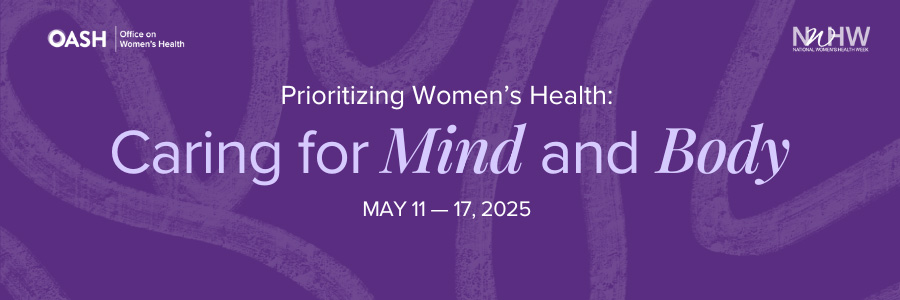
Every May, beginning on Mother's Day, the U.S. Department of Health and Human Services (HHS), Office on Women's Health (OWH) leads National Women's Health Week (NWHW). This year, NWHW takes place from May 11-17. This observance aims to highlight women's health issues and priorities, and to encourage women of all ages to prioritize their physical, mental, and emotional well-being.
Prioritizing Women's Health: Caring for Mind and Body

National Women's Health Week 2025 encourages women to focus on their whole health—mind and body. This year's theme emphasizes the importance of caring for physical, mental, and emotional well-being at every stage of life.
The 2025 observance highlights three important areas of women's health:
- Menopause
- Mental health
- Cancer
By learning more about these topics and talking with a health care provider, women can take meaningful steps to understand and manage their health— both now and in the future.
Key Facts
Menopause
- More than 1 million women in the United States experience menopause each year.
- The average age for menopause is 52, and most women reach it between 45 and 55.
Mental Health
- Women are nearly twice as likely as men to experience major depression.
- Around 1 in 5 women experience mental health issues during pregnancy or in the first year after giving birth.
- Girls who use social media often feel sadness and hopelessness much more than girls who don't use social media frequently.
Cancer
- Cancer causes 1 in 6 deaths among women.
- Women younger than 50 are nearly twice as likely to develop cancer as men in the same age range.
Get Involved and Learn More
Together, we can encourage women to take charge of their health today and in the future. Explore the focus areas and access our ready-to-use toolkit below.





